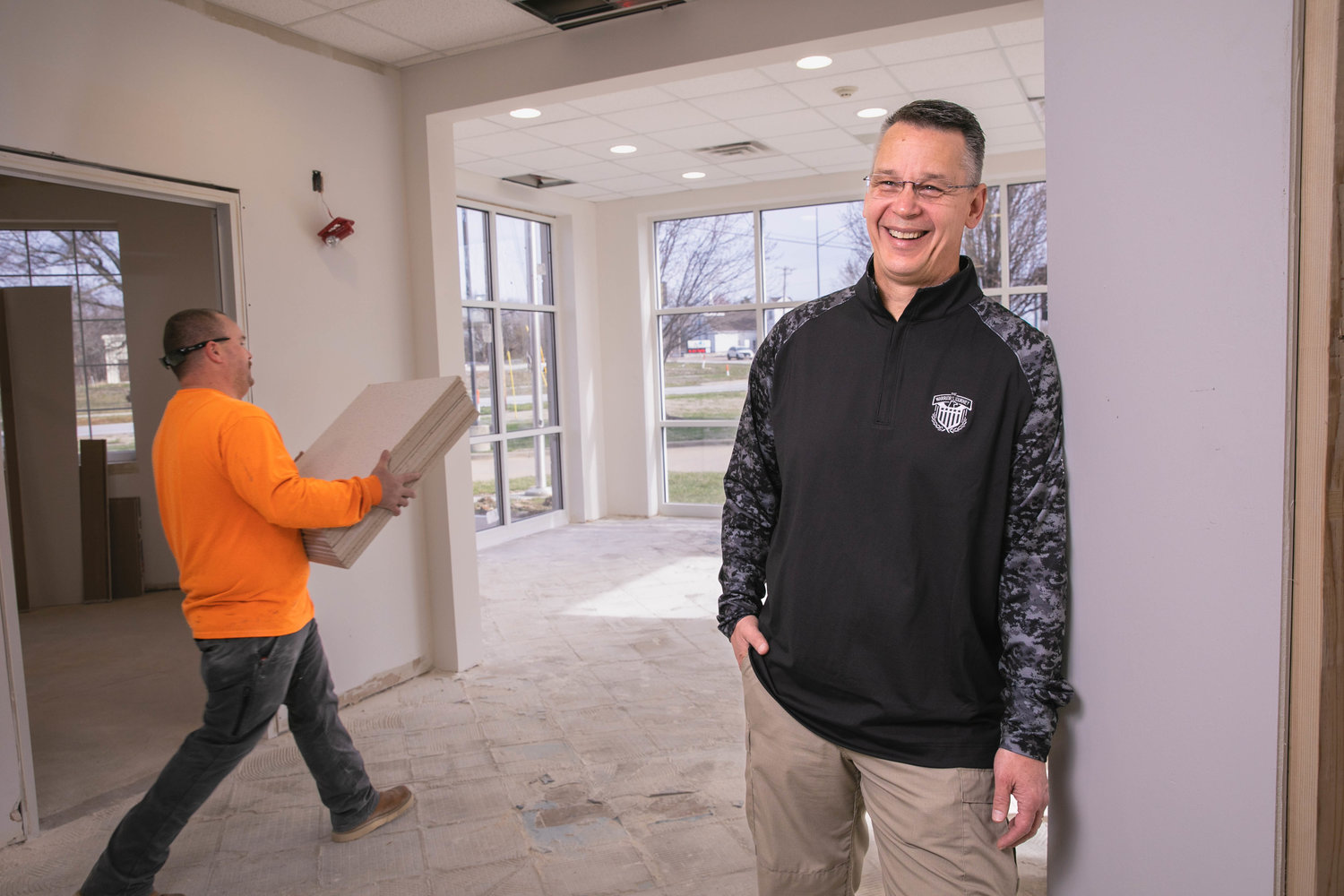YOUR BUSINESS AUTHORITY
Springfield, MO
YOUR BUSINESS AUTHORITY
Springfield, MO

Isolation. Not PTSD, not guilt or shame and not identity issues.
Isolation was No. 1 out of the top 12 issues U.S. military veterans said they dealt with as they reintegrated to civilian life – and it became the impetus to start The Warrior’s Journey. The Springfield-based nonprofit in 2015 spearheaded research of 1,000 surveys by the Harvard Business School in conjunction with the Pentagon after identifying a need for soldiers and their families.
“They realize – I’ve lost such a huge section with my children, them growing up, or my spouse. And I can never get that back,” says Kevin Weaver, TWJ’s co-founder and president/CEO.
The struggle can lead to depression, addiction and suicide, he says. In other words, after leaving field combat, veterans have their own unique combat at home. While much in their native land seems foreign, Weaver says most are confident of one thing: “I know how to shoot bad guys.” Thus, he says they also struggle with identity and confidence in their new role in society.
In 2020, the Veterans Affairs Department reported 6,146 veteran suicides - an average of 16.8 per day.
That’s where TWJ comes in. Weaver and team created a “warrior to warrior” connection system for veterans to talk confidentially with another veteran, spouse or family member.
“The challenge is to connect people with like experiences,” he says.
Today, the group has assembled 200 volunteer connectors worldwide.
“That’s one of our biggest initiatives, to continue to scale that to meet the need,” Weaver says.
Each month, TWJ is making 3,000-4,000 connections of “warriors helping warriors,” he says.
“They’ll talk to their battle buddy – somebody who’s been there and done that, that knows what they’re going through,” he says.
“The need was much greater than we even anticipated.”
Jonathan Garard knows the need as well as anyone. The co-owner of Grooms Office Environments served 15 years in the U.S. Army following the 9/11 attacks. His service involved multiple deployments, including combat in Iraq.
“You never experience these things without being somewhat changed. No one can go through those environments and not be affected, some more than others,” Garard says. “We’re all still dealing with different things.”
On TWJ’s website, veterans and family members can click the “Let’s Talk” button to begin the peer-to-peer connection. There are also articles, podcasts and video resources searchable by roles (i.e., employer and kids), challenges (post-traumatic stress and financial difficulty) and ethos (self-worth and faith). The TWJ team commits to responding within 24 hours. Officials say the next steps are toward prevention of the identified issues and intervention through resources – TWJ has over 60 partner organizations, including the National Center for Healthy Veterans and Movement Mortgage.
Since organizing publicly in 2016, Weaver says TWJ has registered 2 million engagements online, started 53,000 conversations, signed up 15,000 individuals for case management and recorded 1,647 suicide interventions.
“As a veteran, understanding what this battle is like and then looking for a place in my own life where I can give back and come alongside other veterans that are struggling and offer a hand, I never let go,” Garard says of his involvement.
He learned of TWJ three years ago through its annual golf tournament and now is in his second year as a board member. He says the organization has gained momentum this past year.
TWJ has acquired and is renovating a building, the former Central Bank at 3555 N. Glenstone Ave., to serve as its national headquarters. And its annual gala – scheduled April 1 at Oasis Convention Center – is expected to draw 1,000 attendees, Garard says, with special guest Dr. Ben Carson to speak and sponsors including Prime Inc., Reliable Toyota and Legacy Bank & Trust Co.
Weaver, a former Air Force law enforcement officer, says the operating budget has followed the momentum curve. TWJ topped a $1 million budget in 2021, coming off the pandemic year that slashed funding by half to $350,000. Last year, the operating budget grew 60% to $1.6 million – and Weaver says the team’s goal is now above $3 million. That includes a newly opened operation in Germany, where he says some 80,000 active-duty members are stationed. TWJ runs a coffeehouse there to help generate funding, Weaver says.
One of TWJ’s 12 full-time employees was first on the receiving end of its services. During Blake Leitch’s deployment to Iraq, he was hit by a roadside bomb and took shrapnel to his face, resulting in 50 stitches.
He survived, but others he served with did not. The U.S. Department of Defense reports roughly 7,000 military casualties since 2001.
“I very clearly remember dealing with, ‘Why didn’t I die? So many other people have died. I deserve to be at the morgue,’” recalls Leitch, in a testimonial video on TWJ’s website.
Leitch tells his story of the effects of combat – “I was dead inside,” he says – to learning how to deal with a variety of emotions or none at all.
“We need a journey that’s going to help us heal from the inside out,” Leitch says.
After getting help from TWJ, he moved his family last year to Springfield to work as the organization’s chief operations officer.
“We feel we’re just scratching the surface,” Weaver says of his team. “We want to see more people saved.”
Moseley’s Discount Office Products was purchased; Side Chick opened in Branson; and the Springfield franchise store of NoBaked Cookie Dough changed ownership.